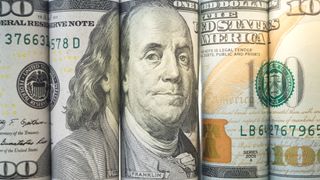A further 38% told WalletHub that they’d happily move to a different country if it meant they never needed to go near the best tax software (opens in new tab) again, while 27% said they would get an “IRS” tattoo for a tax-free future. All told, Americans spend 8 billion hours filing their taxes (opens in new tab) each year, with an average person spending 12 hours and $230 completing their 1040.
Unravelling your tax burden
Of course, the COVID-related filing extension to May 17 (opens in new tab) means taxpayers have a little longer than usual to get their finances in order than in a typical year. However, what the pandemic and its detrimental effect on the finances of millions of Americans also means is that many taxpayers will be paying extra attention to how their tax obligations will impact their household finances. With tax codes notoriously difficult to unravel, WalletHub suggests (opens in new tab) a simpler way to cut through the confusion is by assessing your state’s “tax burden”, a ratio that measures the proportion of total personal income that residents pay toward state and local taxes. Unsurprisingly, this is far from uniform across the U.S. either, with property taxes, individual income taxes, and sales and excise taxes all accounting for a varying share of a household’s total personal income in each state.
States with lowest tax burden
For those living in the following states, the burden of tax on their finances has been measured to be the lowest. So if you want to keep as much of what you earn for yourself, Alaska - where just 5.1% of an individual’s income goes in taxes - is the place to live. The next-best alternatives are Tennessee (5.74%), Wyoming (6.14%) and Delaware (6.21%).
States with highest tax burden
The unfortunate news for residents of New York is that they can expect to lose more of their income to tax - 12.79% - than anyone else across America. The next highest is Hawaii (12.19%), followed by Vermont (10.75%) and then Maine (10.5%).
Keeping your taxes in check
The key to keeping as much of your money away from the taxman as possible is to claim all of the deductions and credits that apply to you. If you’re a homeowner, most will find that the mortgage interest (opens in new tab) that you pay is deductible, and if you’re self-employed and work from home, the home office tax deduction (opens in new tab) is something to explore too. An element of confusion has persisted around the relief payments that Americans have received to see them through the pandemic, but stimulus checks are not taxable (opens in new tab), so you can keep all of that money for yourself. If you spend big on personal protective equipment to guard against coronavirus, it’s also been confirmed that face masks and sanitizer are tax deductible (opens in new tab) too. One thing you definitely don’t want to do is give money away unnecessarily, so that means meeting all of the deadlines when you should, and asking the IRS (opens in new tab) for an extension should you need one. With over half of Americans relying on a tax refund (opens in new tab) to boost their finances this year, you also don’t want to miss out on any money that you might be owed.
